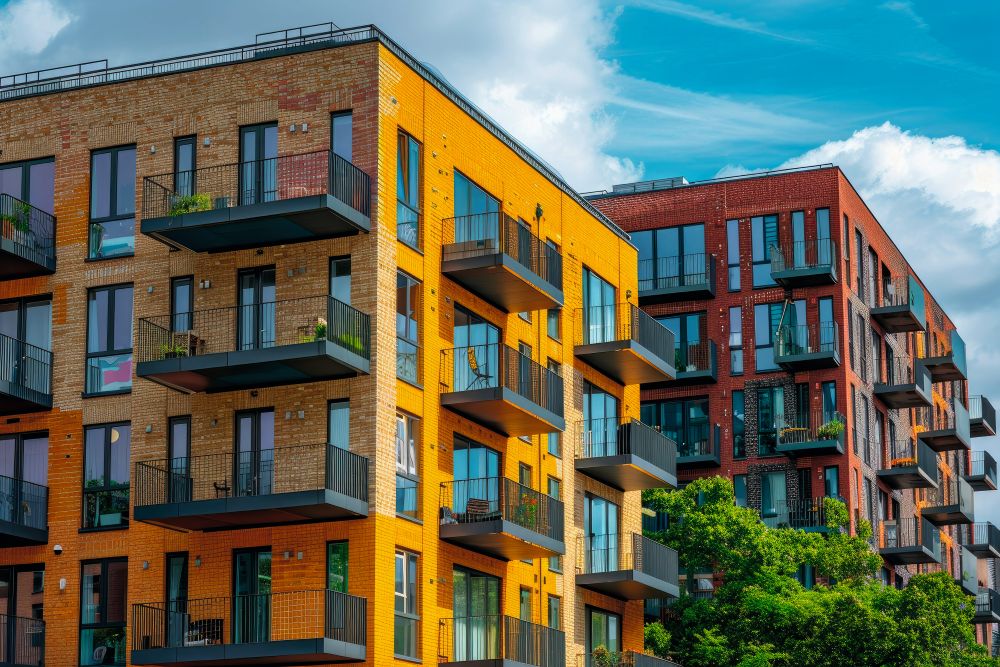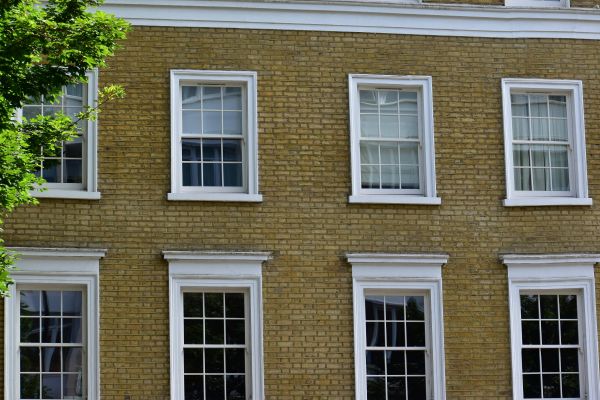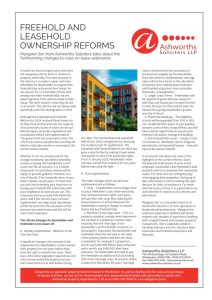 Margaret Ilori specialises in leasehold enfranchisement and talks about the forthcoming changes to rules on lease extensions.
Margaret Ilori specialises in leasehold enfranchisement and talks about the forthcoming changes to rules on lease extensions.
It would not have escaped many that there are sweeping reforms afoot in relation to property ownership. The main purpose of the leasehold and freehold reforms is to make it easier and more affordable for leaseholders to acquire their freehold titles and extend their leases. As we also act for co-freeholders (those who already own their freehold title), we are asked regularly if the reforms relate to their setup. The short answer is that they do but to an extent. The leasehold and freehold reforms are not being made specifically with this demographic in mind

“The government has promised to enact the reforms as soon as possible but until they do (which could take months or even years), the current status remains.”
Although the Leasehold and Freehold Reform Act 2024 received Royal Assent on 24 May 2024 and became law, the majority of its provisions (some of which are set out below) require secondary legislations and consultation before full implementation. The government has promised to enact the reforms as soon as possible but until they do (which could take months or even years), the current status remains.
Whether or not one should wait for the changes to become law before extending a lease or buying the freehold title is not a one-size-fits-all scenario. It is a matter of personal circumstances and we will be happy to provide guidance. However, as a rule of thumb, if the remainder term of your lease is below, say 85 years, it is best that you look into extending your lease term or buying your freehold title collectively with your neighbours as soon as you can. This is because once your lease falls below 80 years, and if the reforms have not been implemented, marriage value (see below) will be factored into the calculation of the premium you need to pay and this will be much more expensive.
“Given the financial implications of some of the proposals, leaseholders and freeholders alike would do well to re-examine their ownership status.”

The reforms (changes for leaseholders and freeholders to be aware of):
A – Already implemented – Abolition of the Two-Year Rule: A significant change is the removal of the requirement for leaseholders to have owned their property for two years before they have the right to extend their lease. There was a time when legislation required you not only to have owned the property but you must have lived in it as well before having the right. The Commonhold and Leasehold Reform Act 2002 changed this by removing the residency test for qualification. The Leasehold and Freehold Reform Act 2024 has gone a step further by making it even easier and quicker to secure full ownership rights. From 31 January 2025, leaseholders need not have owned their property for two years before exercising the right.
B – To be implemented: The major changes which are yet to be implemented are as follows;
- Costs – Leaseholders will no longer need to pay a freeholder’s costs when exercising their enfranchisement rights; each party will pay their own costs thus reducing the financial barrier to enfranchisement for leaseholders making it cheaper to extend leases and buy freehold titles.
- Abolition of marriage value – This is a property valuation concept which represents the increase in a property’s market value resulting from the ‘marriage’ of the leaseholder’s and freeholder’s interests in the property. Essentially the leaseholder and freeholder share the increase in the value of the property before and after the lease is extended. For example, if a property is worth, say £400,000 before lease extension and is worth, say £450,000 after lease extension, the leaseholder will need to pay the freeholder an additional £25,000 being 50% of the marriage value. At present, where a lease term falls below 80 years, marriage value is factored into the calculation of the premium payable by the leaseholder. Once this reform is implemented, marriage value will not be a factor in the calculation of premium thus making lease extension and freehold acquisition more accessible, financially, to leaseholders.
- Longer Lease Terms – Freeholders will be required to grant 990 year leases for both fl ats and houses (an increase from the current 90 years for flats and 50 years for houses) thus giving leaseholders greater security of tenure.
- Mixed Use Buildings – The eligibility criteria will be expanded from 25% to 50% non-residential floor space. If your building contains a mix of flats, shops/offices, you will have a better opportunity to acquire your freehold title and/or manage the building.
- End of leasehold houses – Except in rare circumstances, developers will no longer be permitted to sell leasehold houses – they will have to be sold as freehold.

In conclusion, the above are some of the highlights of the current leasehold and freehold reforms. Given the financial implications of some of the proposals, leaseholders and freeholders alike would do well to re-examine their ownership status. For those who are selling/buying/remortgaging their properties, having up to date information is vital to making the right decision for their circumstances. For those with the luxury of time, it is a good idea to be well informed in relation to the reforms and plan ahead.
Margaret Ilori is a Consultant Solicitor at Ashworths Solicitors LLP who specialises in leasehold enfranchisement. Margaret has extensive expertise in landlord and tenant matters with decades of experience handling both straightforward and complex property transactions. She is especially skilled in handling statutory and non-statutory lease extensions and freehold acquisitions and disposals.
Ashworths Solicitors LLP The Old Exchange, 12 Compton Road, Wimbledon, SW19 7QD • 0345 370 1000 Fax: 0845 370 1001 • info@ashworths.co.uk www.ashworths-solicitors.co.uk
Read Margaret’s editorial in the June 2025 edition of Time & Leisure Magazine.

